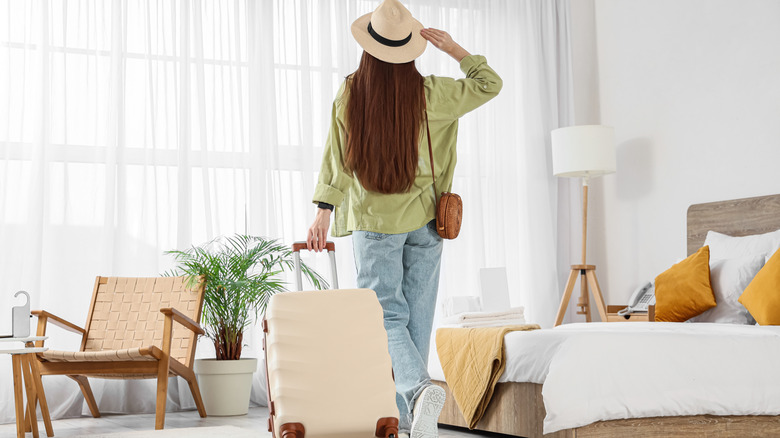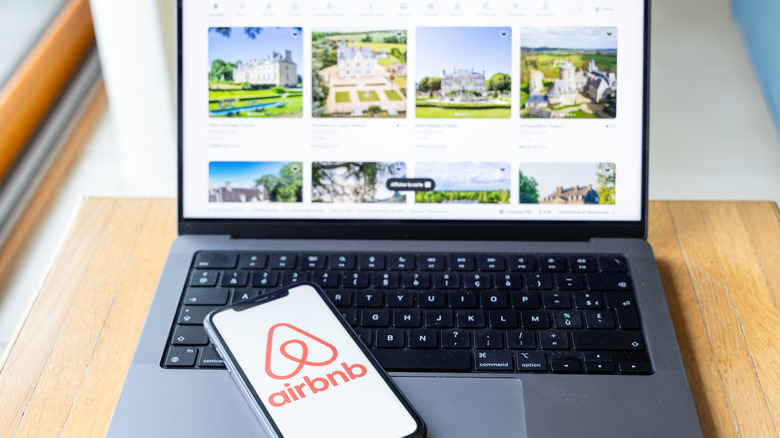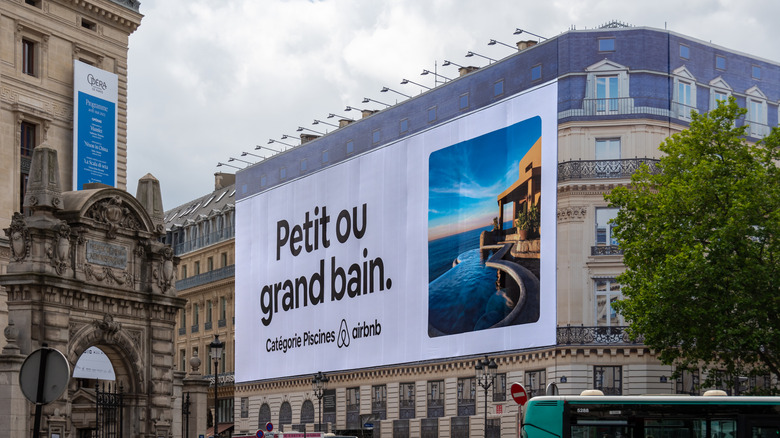Why It May Be Best To Avoid Renting An Airbnb In France
Planning a dream trip to France and considering an Airbnb booking? You might want to think twice before you click that "Reserve" button. The reason is simple: Many European countries have been cracking down on short-term rentals — and France is no exception. Cities like Paris, Nice, Marseille, and Cannes have imposed strict rules on Airbnb-type rentals, due to the negative impacts these places have had on rent availability among locals.
Specifically, many French residents have borne the brunt of reduced housing availability and soaring rental rates, which they believe is caused by house owners choosing to convert their properties into short-term rentals for tourists. This practice is especially common in tourist-heavy cities like Paris, Bordeaux, and Lyon. In response to concerns from citizens and city officials, the French government adopted the Le Meur Law on November 19, 2024 — which some refer to as the "anti-Airbnb law" — as a way to regulate short-term rental activities and mitigate its adverse impacts on the country's housing market and its citizens.
What the new Airbnb law says
The new law imposes stricter regulations in cities where the availability of housing is most strained. In Paris, for example, Airbnb hosts in primary residences can rent their full properties for only up to 90 days per year, a decrease from the former 120-day cap. Otherwise, they must change the classification of their property to a commercial space. Anyone who violates this rule could pay as much as €100,000 in fines. The Le Meur Law also requires that any property listed on platforms like Airbnb must register the property with city hall and receive a registration number, which must be displayed on its Airbnb listing. Listings that lack a valid registration number can be penalized with possible fines up to €50,000.
Different cities in France have different rules. What is restricted in Nice might not be so in Lyon or Marseille, making it even more complicated for travelers to know what to do regarding Airbnb hunting in a given location. These rules are city-specific so that local governments may attend to their own unique housing challenges more easily. Travelers are therefore advised to research the specific regulations applicable in cities where they're making Airbnb bookings. Or even better, opt for a boutique hotel or a licensed guest house, as these may save you the complications — and be better for the city you're visiting.
What the new law means for residents and travelers
With the new anti-Airbnb law, French lawmakers hope to ease the country's housing shortage, lower rising rents in places like Paris and Marseille, and make the cities more livable for residents. For tourists, this means there may be fewer listings of Airbnb-style rentals, so don't be surprised if your ideal Airbnb is sometimes unavailable — or may cancel on you last minute because it isn't complying with particular local laws. This Airbnb law especially hopes to crack down on the 20% of Paris rentals that are being run illegally because they don't have licenses.
For short-term rental hosts, the Le Meur Law also reduces tax benefits. The tax relief for "unclassified" rentals (typically an owner's private home) has been slashed from 50% to 30%, with the annual revenue cap dropping to €15,000, from €77,700. As for "classified" or professionally managed rentals, the tax relief has dropped from 71% to 50%, with a decreased ceiling of €77,700 versus the earlier €188,700 limit. These are further measures to regulate short-term housing and push property owners back to the long-term rental market.
Overall, if you're looking to visit France for a short period, to experience the beauty of Paris or other cities, you might want to consider the ethics while making your lodging plans. Consider the negative impacts that short-term rental practices have had on the communities, and go for alternative accommodations.


